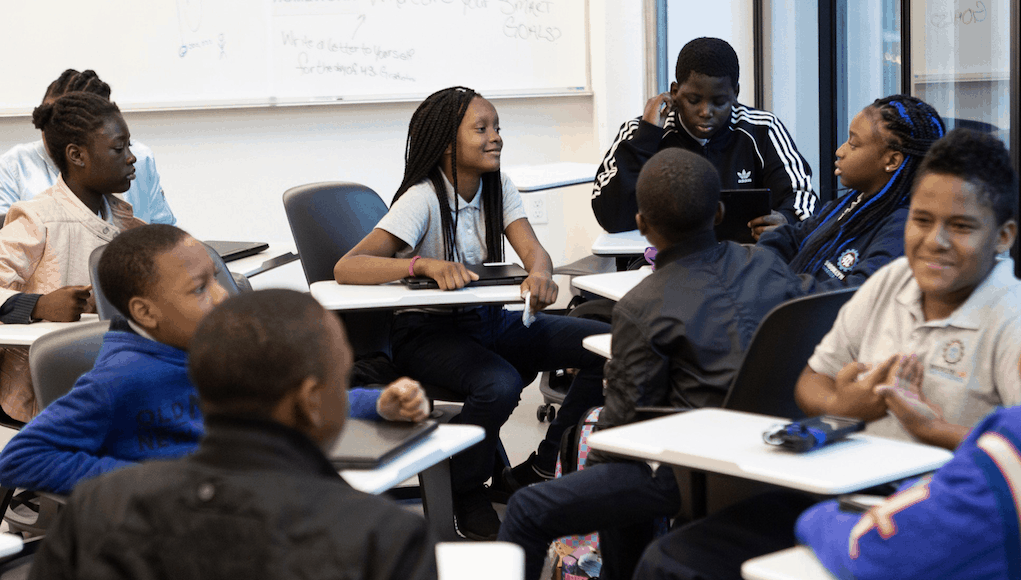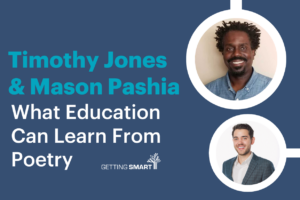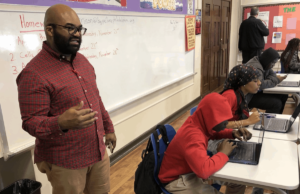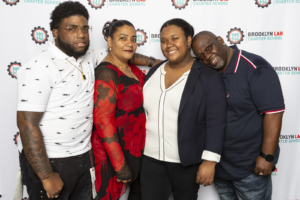Now That Schools Are Promoting Broader Definitions of Success, How Do We Measure Progress?

As more schools adopt learning goals beyond reading, writing and math, certain questions are vexing school leaders worldwide: How can we measure growth in creative thinking? How can we spot a “self-aware” team member? How can we measure whether our graduating high school seniors have the habits necessary to succeed at college and throughout adult life?
The good news is that leading grantmakers have defined new goals for students, including the XQ Learner Goals, the Hewlett Foundation’s Deeper Learning outcomes, and MyWays from NGLC. Battelle for Kids also has a roadmap for schools to develop new graduate profiles.
Beyond the philanthropy sector, education leaders are also puzzling over how to encourage and monitor growth in important career and citizenship skills. For instance, the New York State Education Department (NYSED) is proactively updating its approach to authorizing and monitoring charter schools. “We’re thinking through how we encourage and measure social-emotional learning, citizenship, and critical thinking”, said David Frank (@dfranknyc), the Executive Director of the NYSED Charter School Office (CS) in Albany.
“We’re really interested in fostering the development of New Yorkers who are not only great at reading and math but also have a zest for learning, who can grow, thrive, and stand up for a set of values that they deeply nurture and explore. We want to encourage children to have a healthy sense of confidence in learning and don’t shy away from expressing their values and beliefs. We want to encourage schools to allow students to be creative thinkers and love learning but it’s a very hard metric to measure”, Frank added.
With the help of a generous federal grant, Frank and his team are supporting the creation and expansion of high-quality charter schools in New York state that support both strong academic and socio-emotional outcomes for at-risk students while at the same time improving charter school authorizing practices in New York and beyond. The NYSED CSO is also part of a National Best Practice Dissemination Grant led by the National Charter School Institute to share cutting-edge approaches to measuring non-academic contributors to positive developmental outcomes in children with other leading charter authorizers including SUNY Charter Schools Institute, Central Michigan University, Chicago Public Schools, Hillsborough County (Tampa), and the Nevada Department of Education.
Frank says that “ensuring that students can read, write, and engage in high-level math is still the core of the work we are doing. However, increasingly, we expect the charter schools we authorize to also meet the social-emotional needs of students and push them to foster students to be able to interact with the curriculum and concepts being taught at a high level, perhaps best observed through meaningful student voice in the classroom. Having students think through problems of practice and coming to conclusions collaboratively and in unexpected ways should be in the DNA of any successful school.”
Charter school authorizers across the country have focused on test-based accountability and hold charter schools–which are given more autonomy than their traditional district school peers–accountable to outcomes. Nationally, authorizers closed 238 schools last year and only opened 309 new schools–the most closures and the smallest number of net new schools in two decades.
Frank explained that traditionally many authorizers mostly relied on test-based accountability because it’s easier to apply the results of one exam uniformly across the board. But, he added, “there is a real push now to move beyond sole determinants of outcomes for student and most authorizers I speak to want to take a step forward.”
Unfortunately, authorizers and policymakers are frustrated by the slow development of valid and reliable tools that can be used to measure success skills. For instance, the old New York State Charter School Performance Framework relies heavily on year-end state assessments. And despite all the interest in social and emotional learning, assessment of these important skills remains primitive.
However, a promising update of the Charter School Performance Framework is in the works. The revision emphasizes the importance of serving at-risk students who face adversity in school, such as those with disabilities and English language learners. It also looks to encourage schools to think deeply about ways to increase learning time by reducing suspension rates and putting additional thought into how schools can better serve and engage with students and families that have traditionally been under-served or marginalized. Lastly, it elevates the importance of academic growth and strong family, community and school partnerships.
As a charter school authorizer, over the past few years, the NYSED CSO is increasingly transparent about high standards and the need to achieve strong performance-based outcomes but also acknowledge that there are other leading indicators of success for all students, starting in kindergarten or earlier, that are important factors in strong life outcomes for students, schools and communities once students leave school and go on to college or careers. It is clear that the NYSED CSO is taking important steps to look beyond compliance and inputs, in order to ensure equity and access for all students, monitor student learning in meaningful ways, and partnering with schools to encourage them to think deeply about the mental health, critical thinking skills, and developmental outcomes of the students they serve. As Frank put it, “we need to look beyond just test scores, which are important, and look at the whole child.”
This trend is in line with the aims of the National Commission on Social and Emotional and Academic Development, which recently concluded: “Until we have tools that we are confident adequately capture these skills and attributes in ways that are sensitive to age, developmental stage, and context, and commit to using the measures appropriately for improvement, we risk putting more weight on these measures than is useful.”
In a proactive next step, Frank has started to ask many of the 101 charter schools they authorize to help them think through new and innovative methods for assessing success skills. These frameworks must be observable, measurable, and replicable. “We want to measure these important skills to show we value these things and so all students can benefit,” said Frank. Student engagement and measuring access to socio-emotional supports such as social workers have been some of the early thoughts shared by schools.
To continue on this journey, schools can find best practices at trusted sources such as RAND Education Assessment Finder. The can also learn from their peers. Tiger Ventures and Brooklyn Laboratory High School (BLHS) are two New York schools working on assessing success skills in partnership with Stanford University and XQ. Brookyln Laboratory Charter School are working with NGLC on the MyWays initiative, with a focus on integrating non-academic habits into the classroom in order to better serve students with brain-based learning and attention issues.
Proactive steps by NYSED—including signaling what’s important, having meaningful conversations with schools, and soliciting proposals for new ways to assess difficult-to-measure skills—will lead to an accountability framework that better reflects the skills needed for success in college, careers, and citizenship. And that should support the growth of more good schools for New York families.
For more, see:
- How I Know: Austin ISD Focuses on Social Emotional Learning
- Measuring What Matters
- Personalizing Math and Success Skills in Brooklyn
This post was originally published on Forbes.
This post includes mentions of XQ Institute, a Getting Smart partner. For a full list of partners, affiliate organizations and all other disclosures please see our partner page.






0 Comments
Leave a Comment
Your email address will not be published. All fields are required.